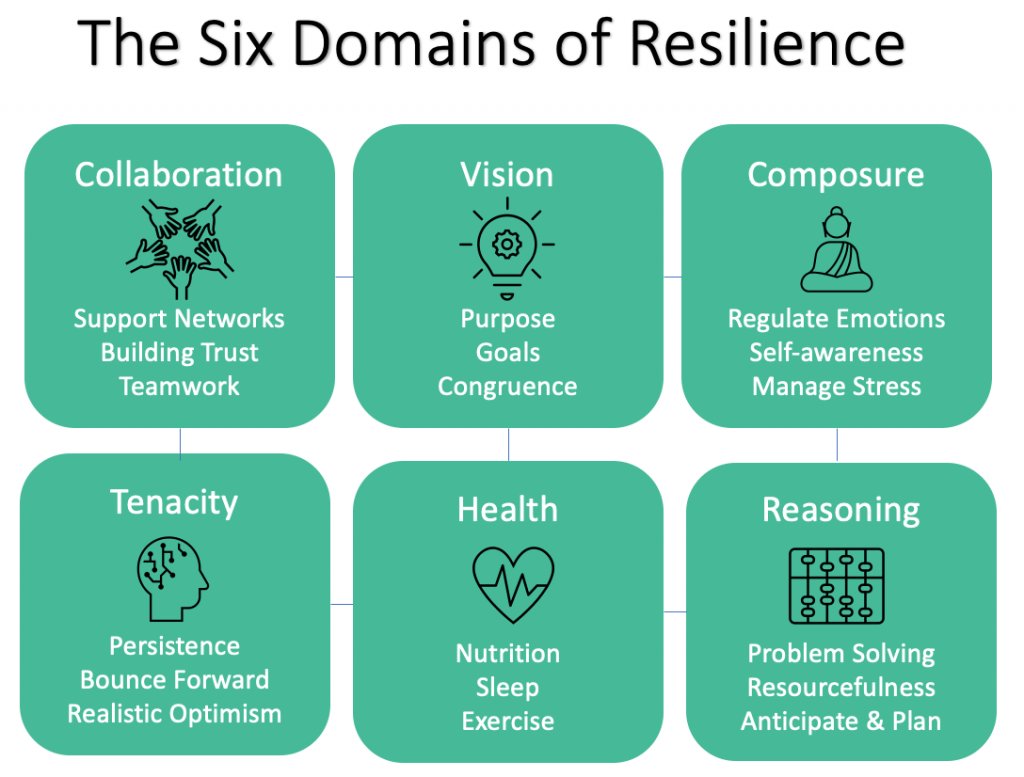In different ways, 2020 and 2021 have been challenging years for all of us and, without doubt, our resilience has been put to the test.
Cast your mind back to March 2020, when workplaces across the country took the decision to close. For those in an office environment, working life was transformed as companies moved their people and work to remote online platforms, many in a matter of days.
As well as proving the point that it’s possible for businesses to operate remotely, smashing the stigma of ‘home shirking*,’ this upheaval tested our ability to adapt in the face of adversity. As we moved into our kitchens, conservatories and bedrooms, our brains had to adjust at hyper speed to living at work, whether we were alone or surrounded by children, pets, partners, or parents.
Interestingly, we were up and running within weeks and with the benefit of technology, it was largely business as usual for many organisations. Times like these provoke learning and it is possible that as a result, many of us have become more resilient. Here are the three key things we’ve learned that have made an important difference.

- Same storm, different boats
As we plot and navigate our course through home working/hybrid working/return to office working, we are all experiencing different circumstances and levels of difficulty. One client commented that her meetings were being interrupted by teenagers demanding to know where their clean hoodies were, what was for lunch, could she support with a particular school project – the list goes on.
By trying to recognise and understand that each person’s situation is different, we’ve stopped feeling that we are having a particularly terrible time or, just as importantly, that we should apologise for the way we feel because other people have bigger challenges. It’s a simple concept and we can apply the same logic to difficult situations in the future to support our wellbeing and resilience.
2. The blue sky is always there
This has been key to supporting our resilience through the last year. It’s another really straightforward concept, an understanding that even though things feel difficult and heavy, like the clouds full of rain, nothing stays the same forever, and, with time, the clouds roll away, revealing the blue sky and the sunshine.
Through the winter lockdown, this idea was especially important and, as the vaccination programme picked up speed and the numbers of people with the virus decreased, spring arrived, helping us to bounce back and feel more positive. In fact, at Executive Edge we prefer the term “bounce forward” because challenging life experiences make us more informed and better equipped to face what might come next.

3. Keep bu**ering on!
It’s well documented that Churchill used to end phone calls and letters to colleagues with KBO (Keep Bu**ering On), apparently he adapted it to ‘Keep Plodding On’ if there were ladies present!
Although we don’t recommend this approach to life all the time, we believe that sometimes we just have to keep on keeping on. Resilience is built through resourcefulness as well as the ability to problem solve AND understand when it’s time to reach out to others and ask for help. Developing this understanding is a key skill and will serve us well when we encounter difficult times in the future. Remembering we can choose to “bounce forward” from challenges rather than thinking about “bouncing back” enables us to recognize that we are more able because of the challenging experience.

In this blog post, we’ve talked about resilience in terms of individual wellbeing but it’s equally relevant to the workplace. Through change and transition, either when new people join or leave a team or when management changes take place, we can apply the same principles.
As far as superpowers go, resilience is a fantastic one to acquire and it looks like the pandemic might just have given us some incredibly powerful new life skills.
How will you use your new superpower?
If you’d like to read more on this subject, there’s a great article in Psychology Today (link below), which describes seven resilience skills we can practice and develop to enable us to not just survive but even thrive through difficult times.
https://www.psychologytoday.com/us/blog/lifespan-perspectives/202003/seven-skills-resilience
For more information about Executive Edge and how we work with clients to support team and management development, take a closer look at our website. If you’re interested in working with us, we’d love to talk to you…

